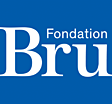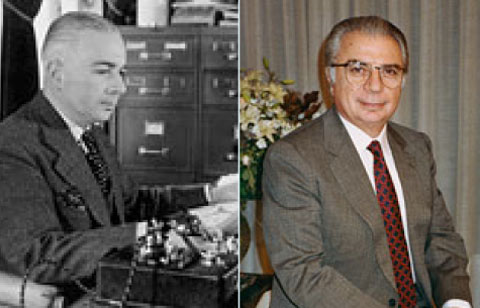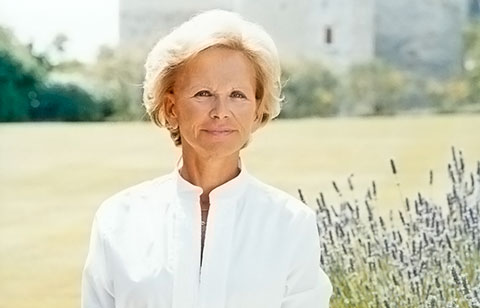
A Success Story
Effervescence: an international success story
In the twentieth century, the history of the Bru family was closely linked to the meteoric rise of the pharmaceutical company it had created and developed with enthusiasm and success for 60 years.
In the late 1920s Camille Bru was a very inventive medical practitioner. After devising a system for X-raying his patients, even in remote rural areas, at their bedside, he had the idea of creating an effervescent solution to facilitate digestion. In launching production at his home in Agen, Dr Camille Bru founded in 1935 the laboratories of the Union Pharmaceutique des Sciences Appliquées (UPSA). He was also a pioneer in the field of marketing, creating the revolutionary clover-shaped Normogastryl pillbox that became familiar to people all over France. By 1958, when he died, the UPSA firm had about sixty employees.
Camille Bru’s only son and successor, Dr Jean Bru, also showed a flair for invention. In 1960 he developed the first effervescent aspirin with Vitamin C, Efferalgan, and Betaine Citrate. Sales exploded and the company attained international status, with awards for exports and for quality and excellence in 1982. Despite a difficult economic climate, his proactive policy enabled the UPSA Group not only to cope with the price freeze imposed on medicinal products, but also, in the late 1980s, to increase its turnover by 50% in three years. Dr Jean Bru’s primary aim – more important still than developing the UPSA Group – was the worldwide improvement of pain relief. He shared his passion for research and innovation with a young doctor, who had been working for the firm since 1971, Nicole Magniez, whom he married in 1980.
Dr Nicole Bru joined her husband at the head of the Group, but when Jean Bru died suddenly in 1989 she was left to hold the reins alone. The firm employed by that time 1,400 people, including 200 researchers. She was to make it into one of the world’s leading firms in its field of competence: in five years under her chairmanship, UPSA doubled its turnover, becoming the top firm in Europe for analgesics and the top firm in the world for effervescence technology. But in 1994 Dr Nicole Bru was forced to sell the family firm, which by then had over 2,000 salaried employees.
A lasting commitment
As the depositary of this entrepreneurial success and human adventure, Dr Nicole Bru continues to uphold its value through her strong commitment to worthy causes.
Thus, in 1993 she created the Institut UPSA de la Douleur (IUD), of which she was chairman until 2001, and in 1994 the Association Docteurs Bru, which in 1996, in the house in Agen where the firm had begun, set up a pilot project, the Maison d’accueil Jean Bru, a reception centre for minors who have suffered sexual abuse or incest.
Finally, Dr Nicole Bru brought together all her humanitarian and cultural sponsorship initiatives under the umbrella of the Fondation Bru, a foundation devoted entirely to supporting well-conceived pioneering projects aiming to serve a useful purpose.
The lucky four-leaf clover
Camille Bru had had the idea of including in the packaging of Normogastryl a small box in the shape of a three-leaf clover, intended to hold a day’s dose of tablets. This box, which could be slipped into a pocket, later became a four-leaf clover, to hold three tablets, plus one for a friend!

This original idea had a strong impact and on the initiative of Camille’s son, Jean Bru, the four-leaf clover became the logo of Laboratoires UPSA in 1970.
Nothing has any meaning if it is not at the service of Humanity
Man and his environment are at the heart of all the actions supported by the Fondation Bru. In very different fields, notably education and research, culture and heritage, the foundation supports ambitious pioneering projects that are likely to further significantly the cause they serve.
Two exceptional men
Doctor Camille Bru and Doctor Jean Bru.
A Woman of Conviction
“What counts in life is one’s capacity to influence the course of things!” That is the belief of Nicole Bru, doctor, researcher and businesswoman.


